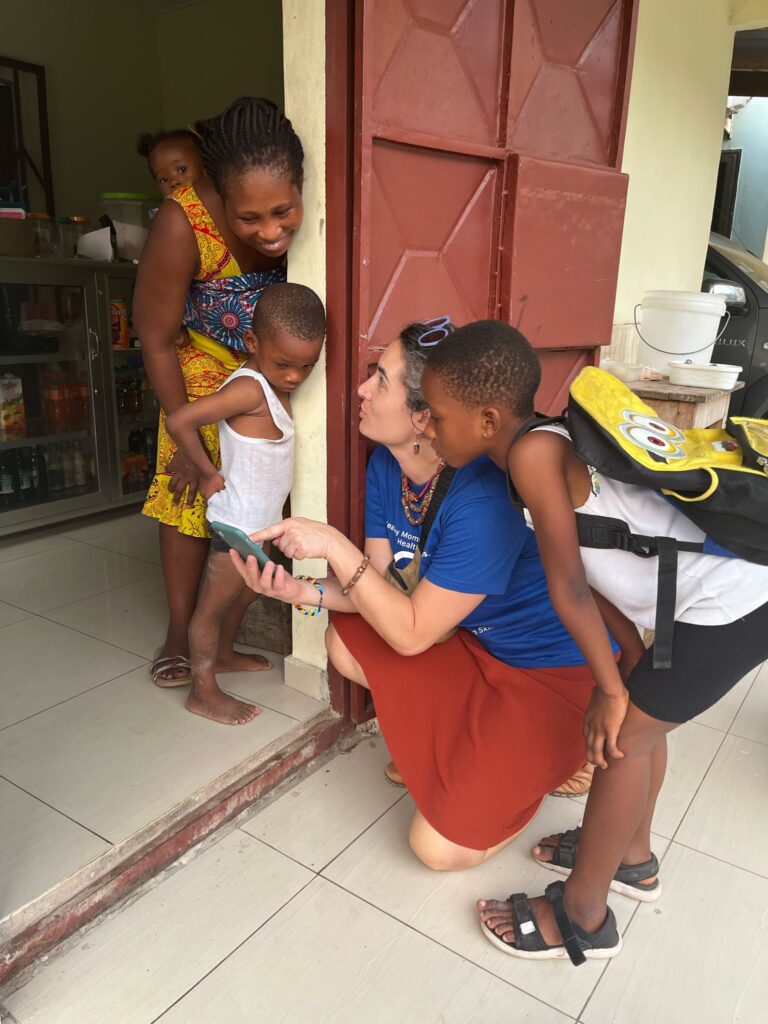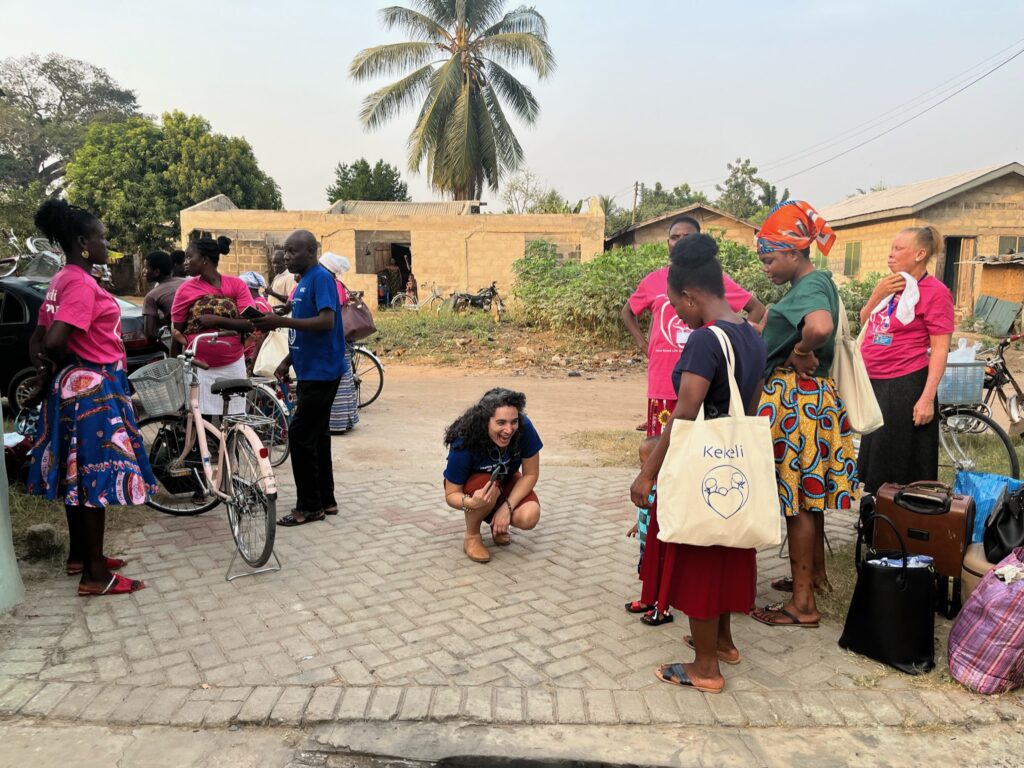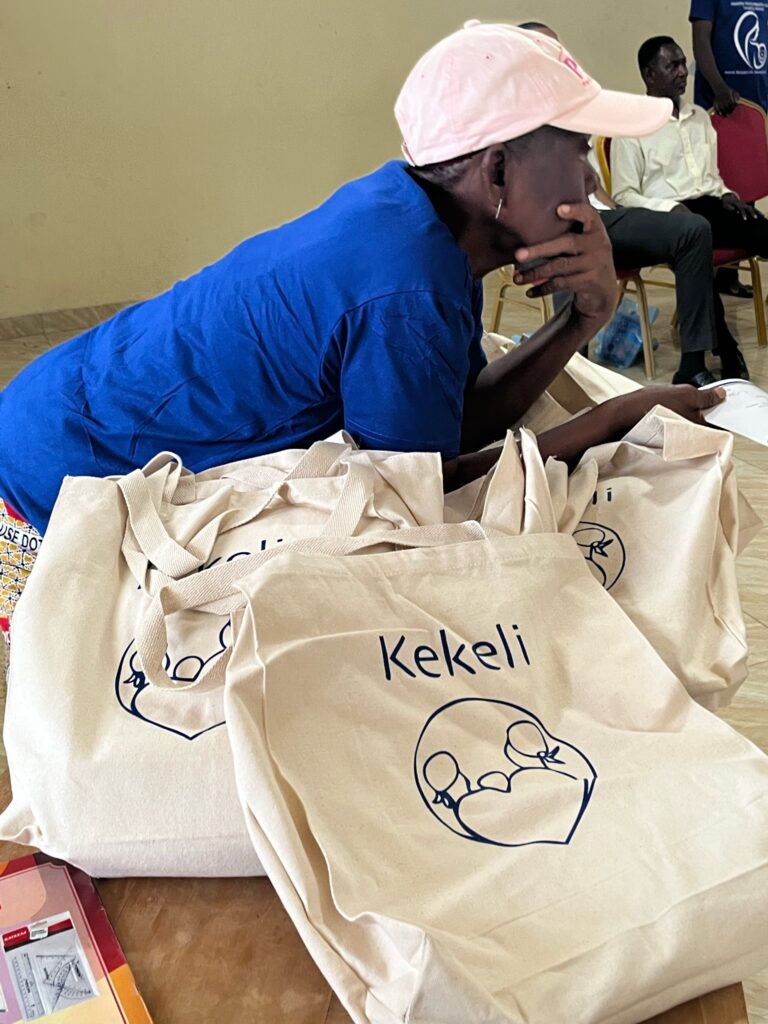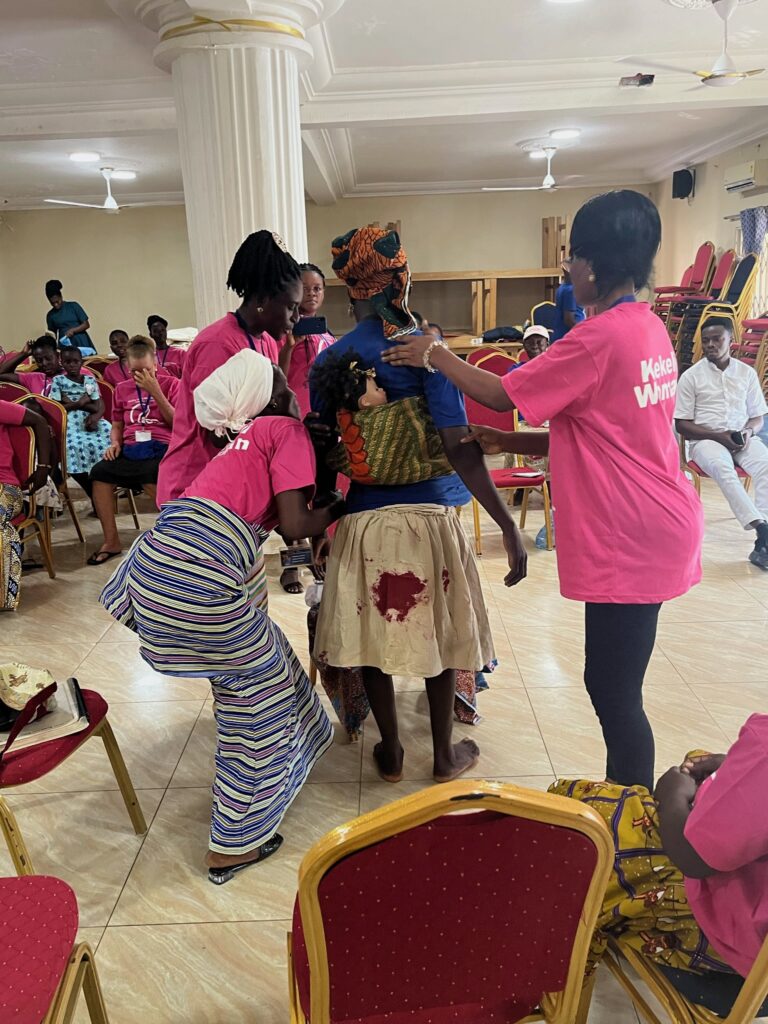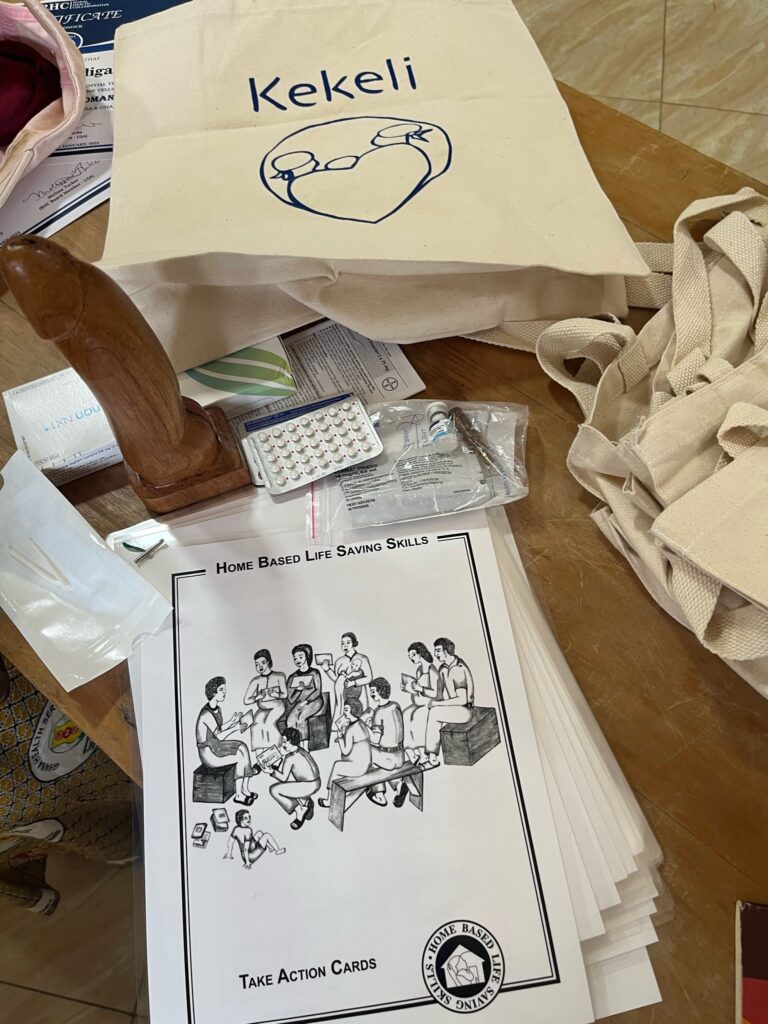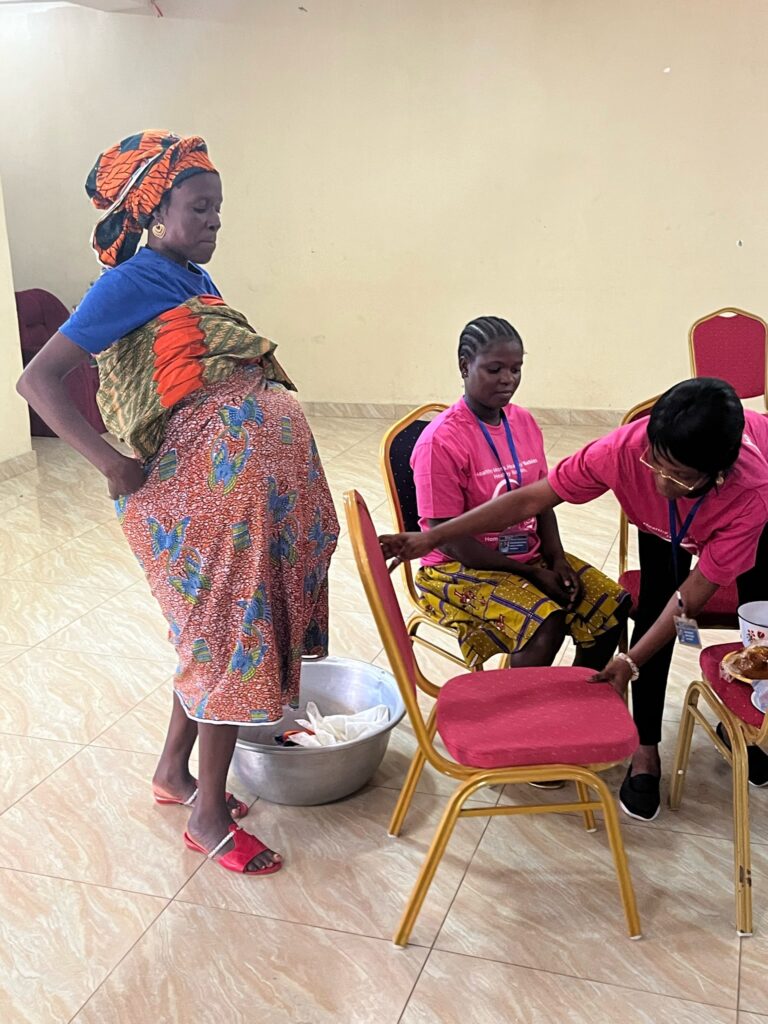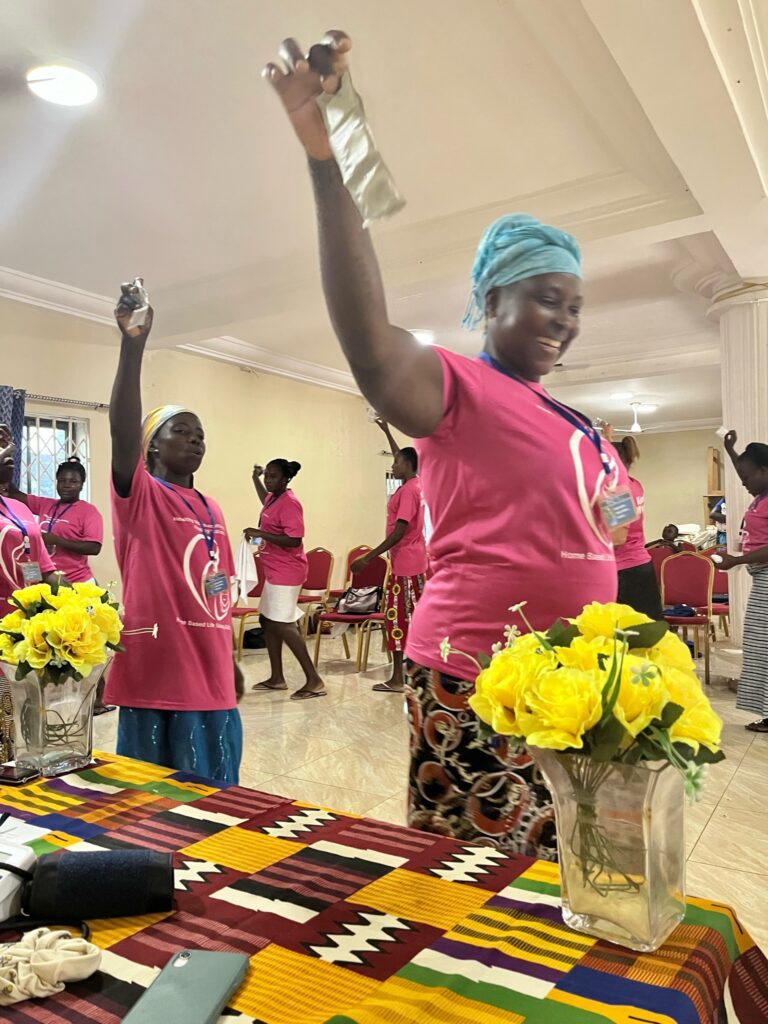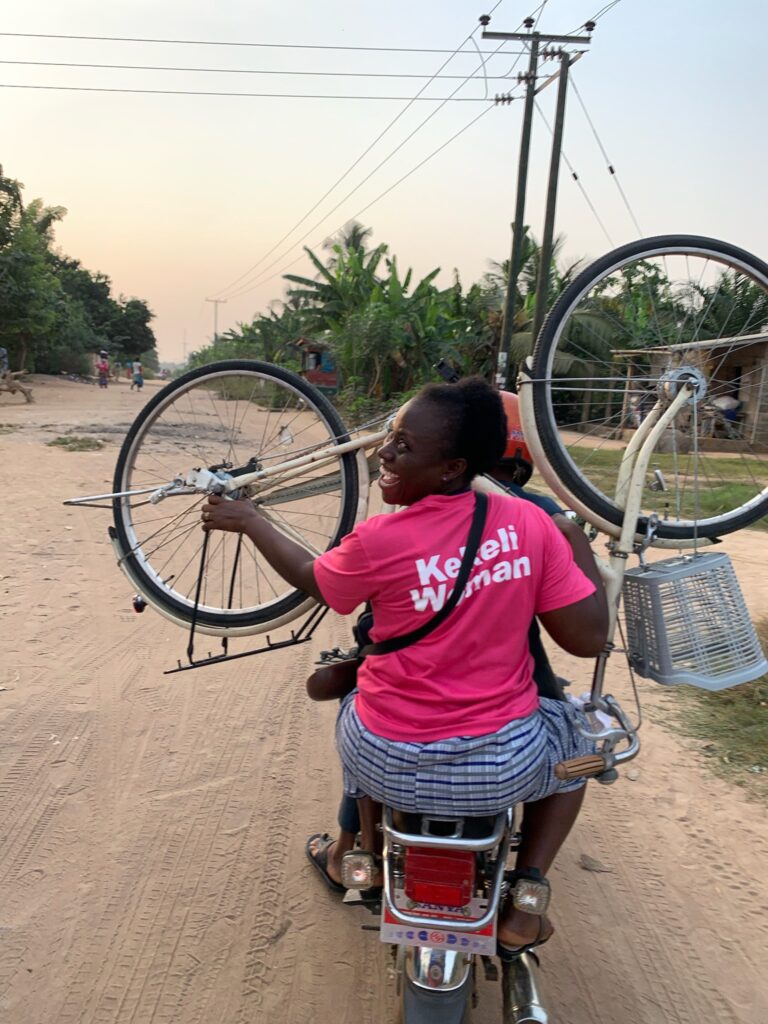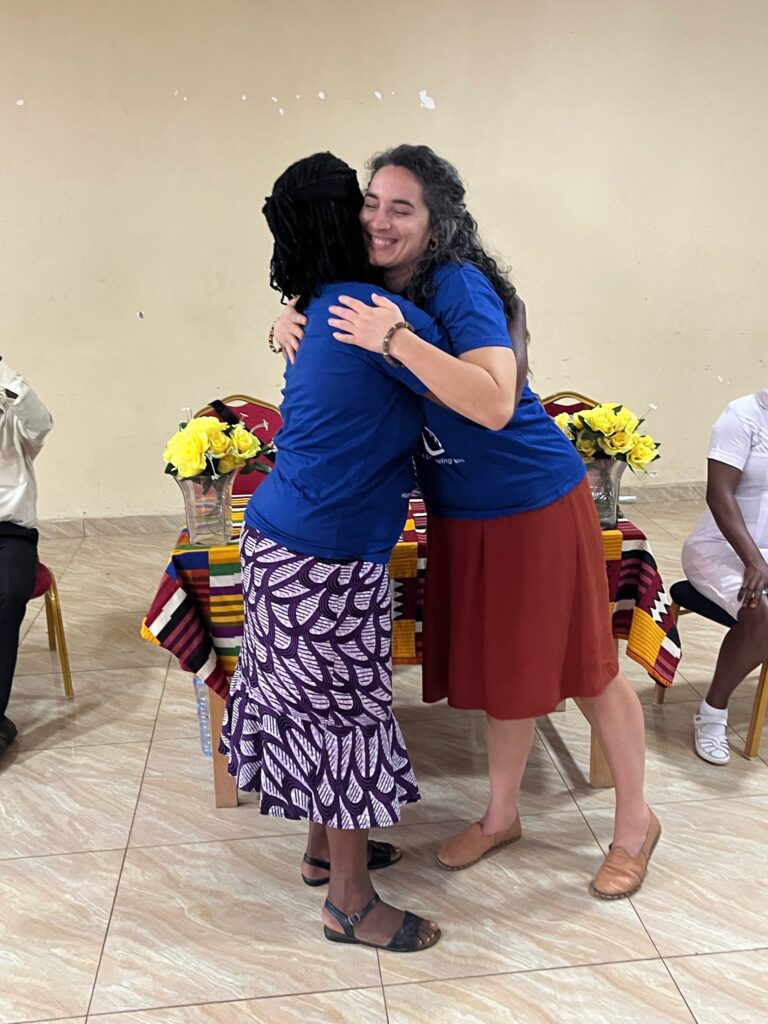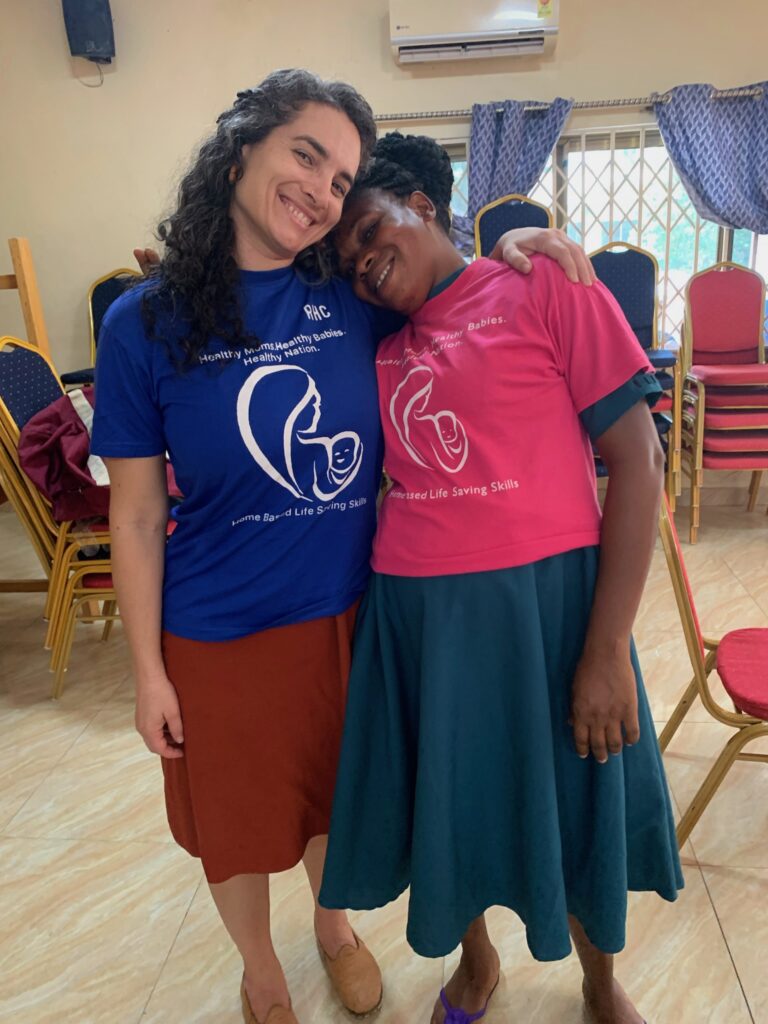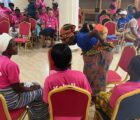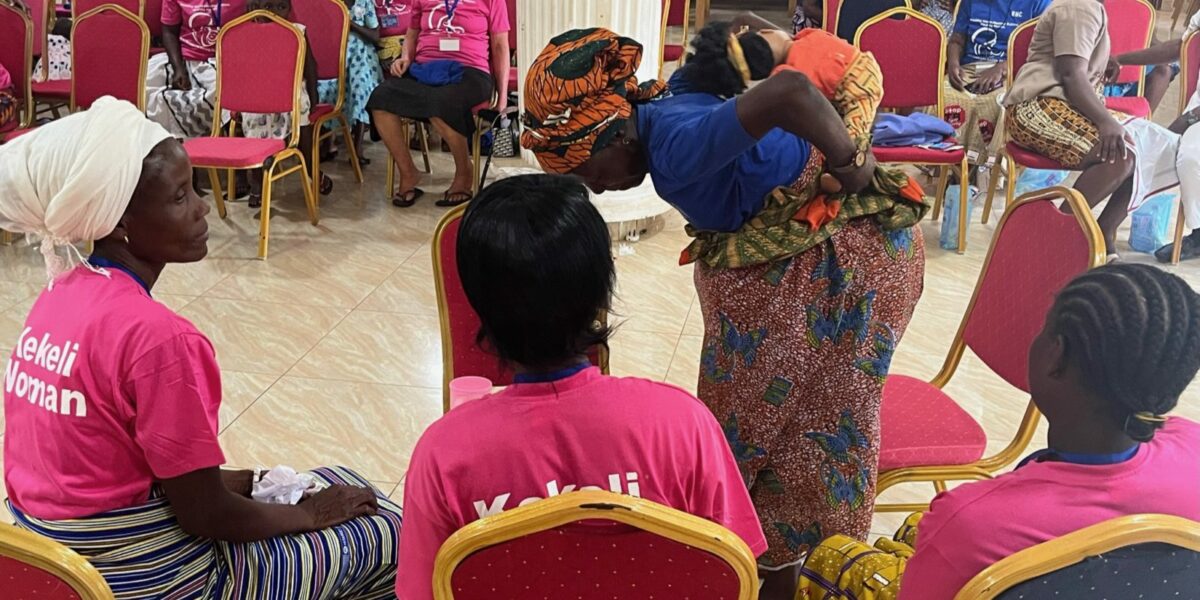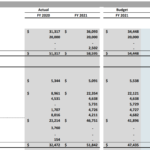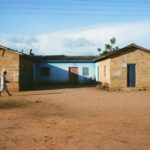The Kekeli Women walked by, their feet stepping in rhythm, hot pink shirts worn atop colorful Ghanaian prints, white handkerchiefs waiving into the air as they swayed back and forth, singing a welcome to the guests at their graduation. The room was full with the warmth of their voices. They completed their training in Home Based Life Saving Skills, a program focused on recognition and early referral for pregnancy and newborn complications that arise in the community setting.
Throughout the weeklong training course they were earnestly engaged, asking questions and enacting role plays. They moved through rhythmic motions and gestures to encourage memory of the steps to take if you find a pregnant woman who is bleeding. To signal the end of each break, one of the women dramatically beat on an empty plastic water bottle with a stick and a big smile on her face, letting her friends know it was time to resume their education.
The week was full of joy, laughter, camaraderie, and connection. For my own soul, it felt like a balm after many long years of disconnection and separateness.
During graduation today, I had the chance to share that when we began as a program, we never knew if there would be a Kekeli 4. We could only dream of one. And here we are, with over 70 Kekeli Women actively engaged in the program. Finding childcare, taking time away from work, negotiating with their families for someone else to do the work of the home so that they can spend 4 consecutive days learning. All so they can volunteer their efforts in their own community, to improve the health of themselves, their families, and their communities.
Earlier in the week, Mavis, a woman from the Kekeli 2 group, asked me if I was going to have another child. “I don’t know,” I laughed in response, “having children is hard!” “Being a woman in Ghana is hard,” she responded, shaking her head. Her response was not harsh, only true. The reality of the lives of many of the women in our program is that they work incredibly hard. Most of them are working hard in the home: washing clothes by hand, cooking meals from scratch, getting water either from a well, a pump, or a source they have to walk to. They are often also working a job, maybe as a teacher, maybe as a farmer part time too, and then the Kekeli Women are also volunteering their time as health promoters. I share this to inspire admiration for the commitment they have to this work.
I am left feeling as I often do when I end my time in Ghana. For as long as they want to keep showing up to offer their time to their communities, I will keep showing up to offer mine too. And to find a way to make it financially possible for them to do their work.
I invite you to join us in financially supporting this life-changing work, both for the women who are the health promoters and for the communities they serve.
With gratitude,
Olivia
